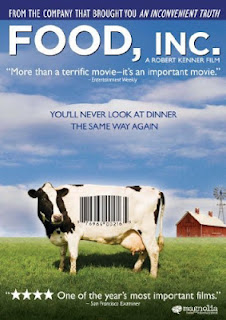I say again that Obama is a promulgator of NWO. Multinationals are above the government of
each country. I think this is the case
with Japan, too. I suspect that only
some bureaucrats are secretly conducting TPP negotiations in complete disregard
for politicians in the same way as in the U.S. where Congress members are not informed of TPP. In Japan,
bureaucrats cannot be at the top and as Mr. Jiro Motozawa points out, we
must suspect that at the top is the industrial conglomerate. As the Social Cycle Theory propounded by P.
R. Sarkar, today is the epoch of Vaishya
(acquisitors) in which at the top is Vaishya,
followed by Vipra (bureaucrats) who
serve Vaishya, Kshatriya (warriors, politicians) and Shudra (common people) who are controlled under the others, in this
order.
It splendidly proves what this theory says.
Masatoshi
Takeshita
February
25, 2013
English translation of a Japanese article: Shinshu no Izumi – February 25, 2013 –
One
hellish future caused by TPP appears in the movie “Food, Inc.”
After viewing the film “Food,
Inc.”, I truly felt how horrifying it is to take part in TPP negotiations. The title of “Food, Inc.”
means “corporation of food production.”
It depicts the reality that meat and cerials
provided for American food is monopolized by serial majors and several major
meat companies and such major companies force such commercial farmers to employ atrocious techniques in defiance of safety,
ecology and production sustainability.
For example, they feed cows, pigs and
chickens on fodder not supposed to be given or administer to them growth
hormone drugs and powerful antibiotics in order to make them grow quickly and
effectively. A
small number of major cereal companies and meat-packing companies make a huge
profit, while farmers in general who are subcontractors of such companies, whether
engaged in dairy husbandry or cereal culture, are forced to work under harsh
conditions. American farmers seem
to endure as tens of times hardship as Japan’s farmers controlled by
agricultural cooperatives.
For example, import
of cheap U.S.-made corns according to the NAFTA (North American Free
Trade Agreement signed by three countries of U.S., Canada and Mexico) practically annihilated Mexican corn farmers. Corn farmers who were
forced to go out of business have frequently worked at big meat factories in
the U.S. as immigrants together with other illegal immigrants. These meat factories are unsanitary and dangerous. They are forced to incessantly engage in simple
work on assemble lines as fast food.
There is a high probability that dismantled livestock excreta will be
mixed into meat.
This story has much to do with import of
U.S.-made beef. With the start of the
Abe administration, the Ministry of Health and Welfare decided to permit import
meat from “cattle 30moths old or younger”, instead of “cattle 20 moths or
younger” and to “exclude the brain and spinal cord” from specified-risk
materials which are required to be removed.
This measure will be practiced from this month (February). In a word, if meat contaminated with BSE comes
to meat factories, it is likely to be sent to Japan, too. On top of that, this film has disclosed
various harmful effects caused by large-scale industrialization of agriculture
and livestock industry, including the issue of genetically modified food.
Genetically modified corn
developed by a big company Monsanto, which is subsidized by the U.S.
government, has been mas-produced and exported in large amounts. The company is carrying out
a plan to devastate the agriculture of export destination and sell off
U.S.-made corn at a lower price almost eternally. This film shows us
the reality that American multinationals handling food products are exercising
political power so that they can have strategic, oligopolistic control of export
of their products.
The “Food, Inc.” tells us the reality that
Americans are forced to eat high-calorie, unhealthy and unnatural food far
different from organic food and America food also poses a great risk to import
countries. The former Noda
administration had spread debris from the Great East Japan Earthquake which had
risk of proliferating radiation. This
writer conjures that this is why the administration had an intention to
devastate Japan’s agriculture and livestock industry in anticipation of
TPP. Actually, we got hearsay
information that after the severe accident of Fukushima nuclear power plant in
2011, the livestock industry in the U.S. whooped with joy: “This can make us
sell meat to Japan.”
Although this film makes
me shudder with shock, it enables us specifically image how infringement of sovereignty
will pose a risk to what Japanese eat at table in case of participation in TPP
negotiaions. I
don’t want to eat tofu and natto made from genetically modified
soybeans. I do want you to see the film
to get important information.

